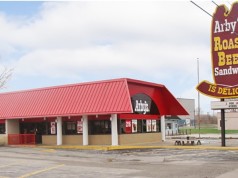WARREN, Mich. – October 17, 2014 – (RealEstateRama) — With more than $69.3 million in disaster recovery assistance approved for Michigan homeowners and renters, fake building contractors are angling to get their hands on some of it, state and federal officials warned.
Scam artists and other criminals often prey on survivors who have received money to repair their storm-damaged homes. Authorities in Michigan have already received isolated reports of people doing just that.
“In times of crisis, Michiganders pull together and help each other when it’s needed most,” said Michigan State Police Capt. Chris A. Kelenske, State Coordinating Officer and Deputy State Director of Emergency Management and Homeland Security. “Unfortunately, there are some people who will try to take advantage of disaster survivors. We strongly recommend that individuals take a few simple steps to make sure they’re dealing with an honest person.”
Homeowners and renters may be anxious to repair their homes as quickly as possible, but the Federal Emergency Management Agency (FEMA) urges them to first check the credentials of anyone offering to do repairs.
The Michigan Department of Licensing and Regulatory Affairs (LARA) offers valuable resources to help determine whether a contractor is a legitimate professional:
For residential builders and maintenance and alteration contractors, an online license search is available at www.michigan.gov/licenselookup or by calling the LARA’s Corporations, Securities and Commercial Licensing Bureau at (517) 373-8376.
Electricians, plumbers and mechanical contractors are licensed by LARA’s Bureau of Construction Codes and must have a license that corresponds to the work to be done. Mechanical contractors must also have the proper license classification. To verify license information, go to www.michigan.gov/bcclicense or call (517) 241-9313.
“In every disaster, there are always a few individuals who want to profit from the recovery effort,” said FEMA Federal Coordinating Officer Dolph A. Diemont. “Asking just a few questions can save people from a lot of heartache.”
It is important to note that FEMA housing inspectors verify damage, but do not hire or endorse contractors to repair homes. FEMA housing inspectors do not determine eligibility for assistance.
When hiring a contractor:
Ask the individual to show you his or her “pocket card,” which will contain the license number.
Use licensed local contractors backed by reliable references.
Get a written estimate from at least three contractors, including the cost of labor and materials, and read the fine print.
Select only contractors that carry general liability insurance and workers’ compensation. If the contractor is not insured, the homeowner may be liable for accidents that occur on the property.
The most common post-disaster fraud practices involve not only fraudulent building contractors, but phony housing inspectors, bogus pleas for disaster donations and fake offers of state or federal aid.
Those who suspect fraud may call the FEMA Disaster Fraud Hotline at 866-720-5721.
Complaints may also be made to local law enforcement or through the Michigan Attorney General’s office at 877-765-8388 or online at www.michigan.gov/ag.
###
FEMA’s mission is to support our citizens and first responders to ensure that as a nation we work together to build, sustain, and improve our capability to prepare for, protect against, respond to, recover from, and mitigate all hazards. Follow FEMA online at twitter.com/femaregion5, www.facebook.com/fema, and www.youtube.com/fema. Also, follow Administrator Craig Fugate’s activities at twitter.com/craigatfema. The social media links provided are for reference only. FEMA does not endorse any non-government websites, companies or applications.




